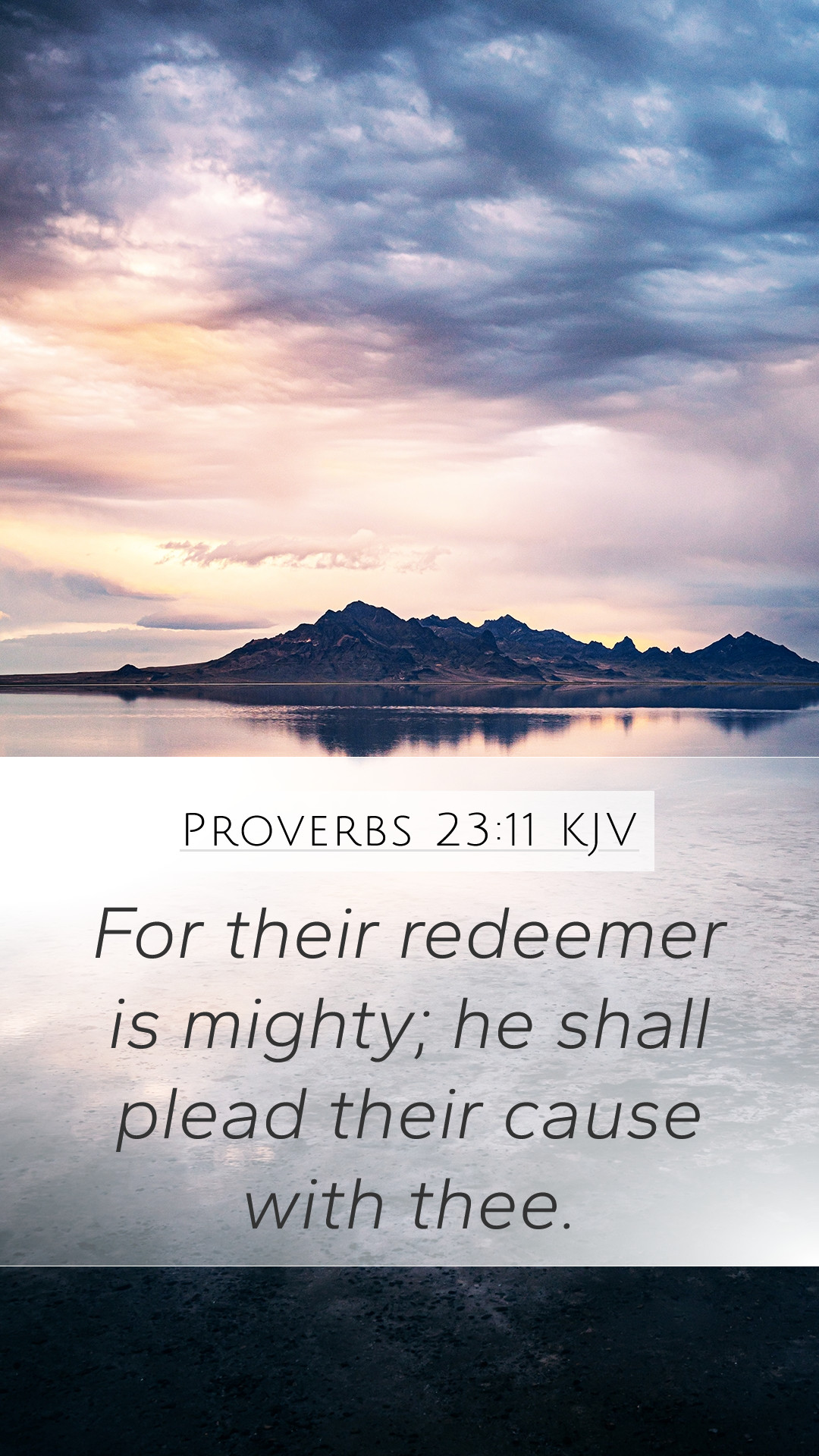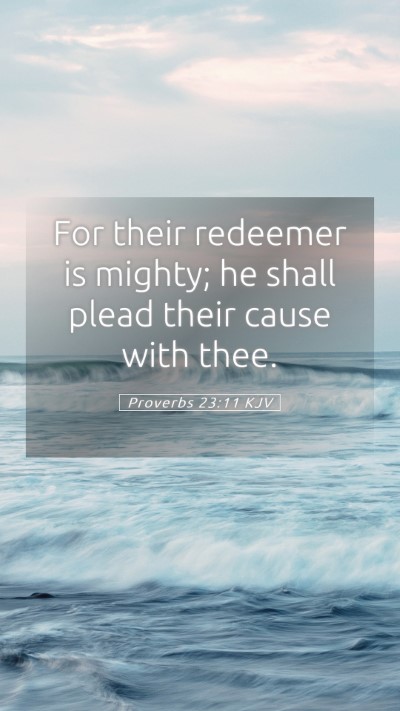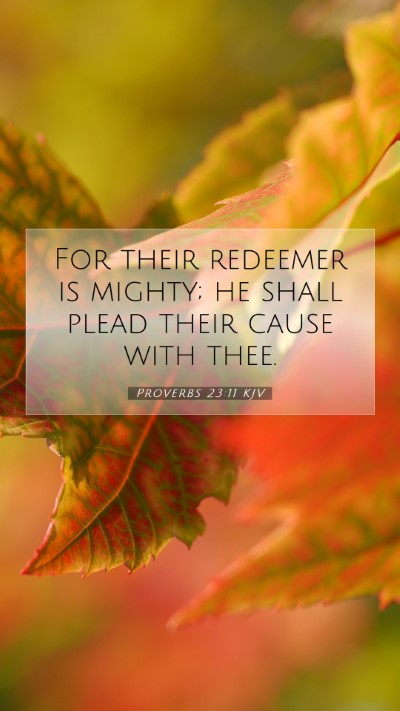Understanding Proverbs 23:11
Proverbs 23:11 states: "For their Redeemer is mighty; he will plead their cause against thee."
This verse encapsulates profound insights about justice, divine intervention, and the assurance of God's protection for the vulnerable.
Meaning of Proverbs 23:11
The verse can be understood in several layers, each offering a rich perspective on its intent and implications in the lives of believers.
-
Divine Justice: This verse underscores the role of God as a redeemer who actively engages in the defense of those who are oppressed or wronged. This assures believers that they are not left without recourse when faced with injustice.
-
Encouragement for the Oppressed: The "Redeemer" symbolizes hope and security for the oppressed in society. It reminds believers that God is aware of their circumstances and will take up their cause.
-
Moral Responsibility: This verse implies a moral responsibility for individuals not to exploit or mistreat others, especially those who are defenseless, as God is actively opposing such injustices.
Bible Verse Commentary
Matthew Henry highlights that the phrase "their Redeemer" refers to God, emphasizing His power and willingness to intercede on behalf of the needy. According to Henry, it serves as a reminder of God's providence and protective nature.
Albert Barnes elaborates on the implications of God "pleading their cause," suggesting that divine justice will prevail, and that individuals who harm the vulnerable will ultimately answer to God for their actions. This reinforces the concept of accountability under divine oversight.
Adam Clarke offers an interpretative angle about the societal implications of the verse, remarking on the need for social justice and ethics within the community. He notes the urgency of recognizing God's ultimate authority over human affairs.
Scripture Analysis
In analyzing this verse, it's vital to consider the broader context in the Book of Proverbs and the themes of justice and righteousness that run through it. Proverbs aims to impart wisdom on moral living, promoting the welfare of all, especially the less fortunate.
Related Biblical Cross References
- Psalm 146:9 - "The Lord protects the strangers; He supports the fatherless and the widow." This verse echoes the same theme of God's protection over the vulnerable.
- Isaiah 1:17 - "Learn to do good; seek justice, reprove the ruthless, defend the orphan, plead for the widow." Here, the emphasis is also on action towards ensuring justice for those in need.
- James 1:27 - "Pure and undefiled religion before God and the Father is this: to visit orphans and widows in their trouble, and to keep oneself unspotted from the world." This highlights the call for believers to care for the vulnerable.
Applying Proverbs 23:11 to Daily Life
Believers are encouraged to reflect on this verse and its implications for their lives and communities. Ensuring justice for the marginalized is not just a divine expectance but a call to action for all members of faith-based communities.
Understanding Scripture Through This Verse
Proverbs 23:11 invites readers to delve deeper into the nature of God as a defender and advocate. It challenges individuals to be vigilant against injustices and to act in accordance with their faith by supporting those in need.
In-Depth Bible Verse Analysis
By examining Proverbs 23:11, one can gain insight into the intricate relationship between divine authority and human justice. It serves as a powerful reminder that God's reach extends into aspects of earthly governance and personal conduct.
Conclusion
This analysis of Proverbs 23:11 provides foundational guidance for understanding the broader scriptural context regarding justice and divine watchfulness. It offers substantial insights for Bible study groups, enhancing the collective understanding of God’s advocacy for the oppressed.


